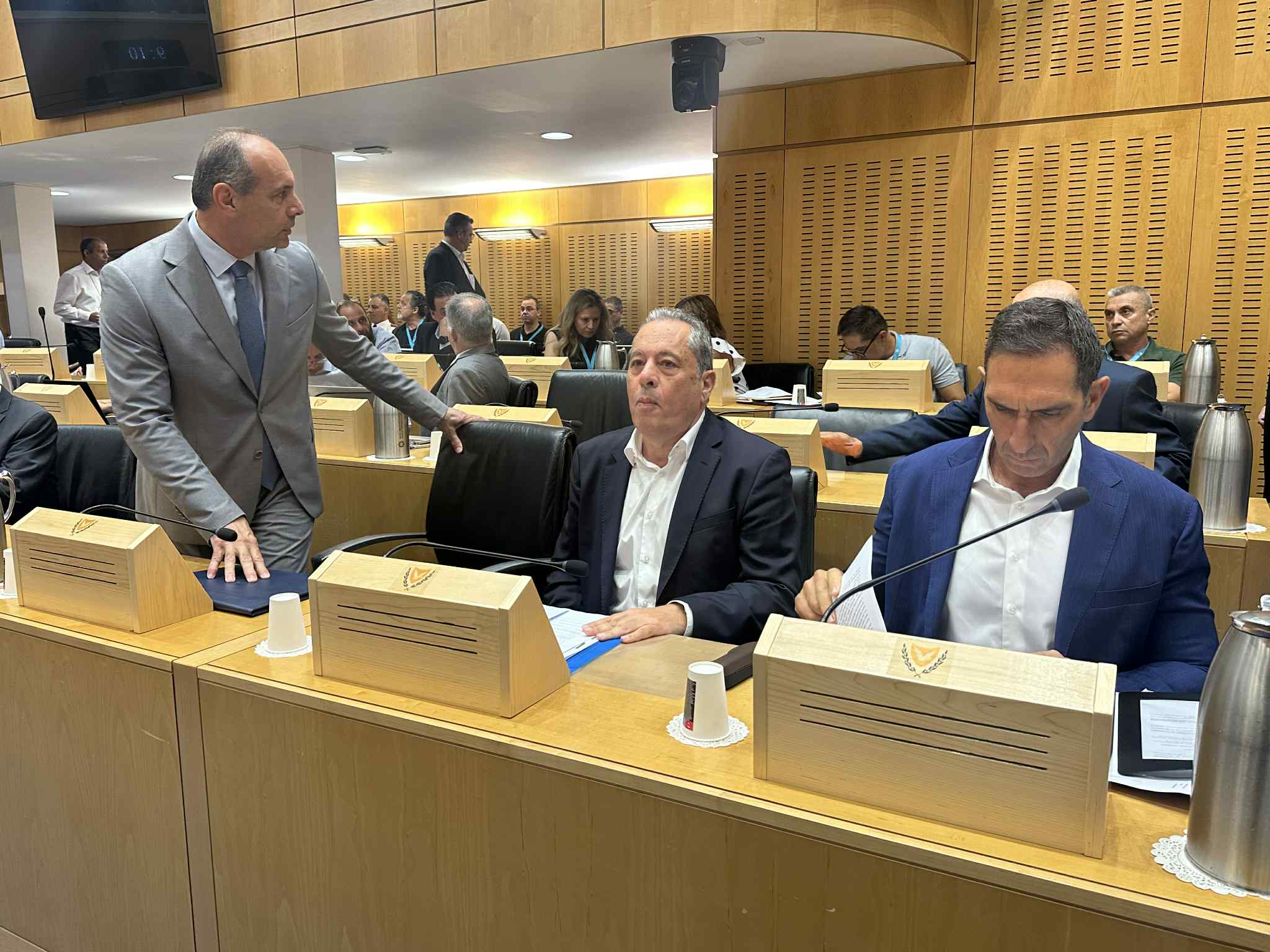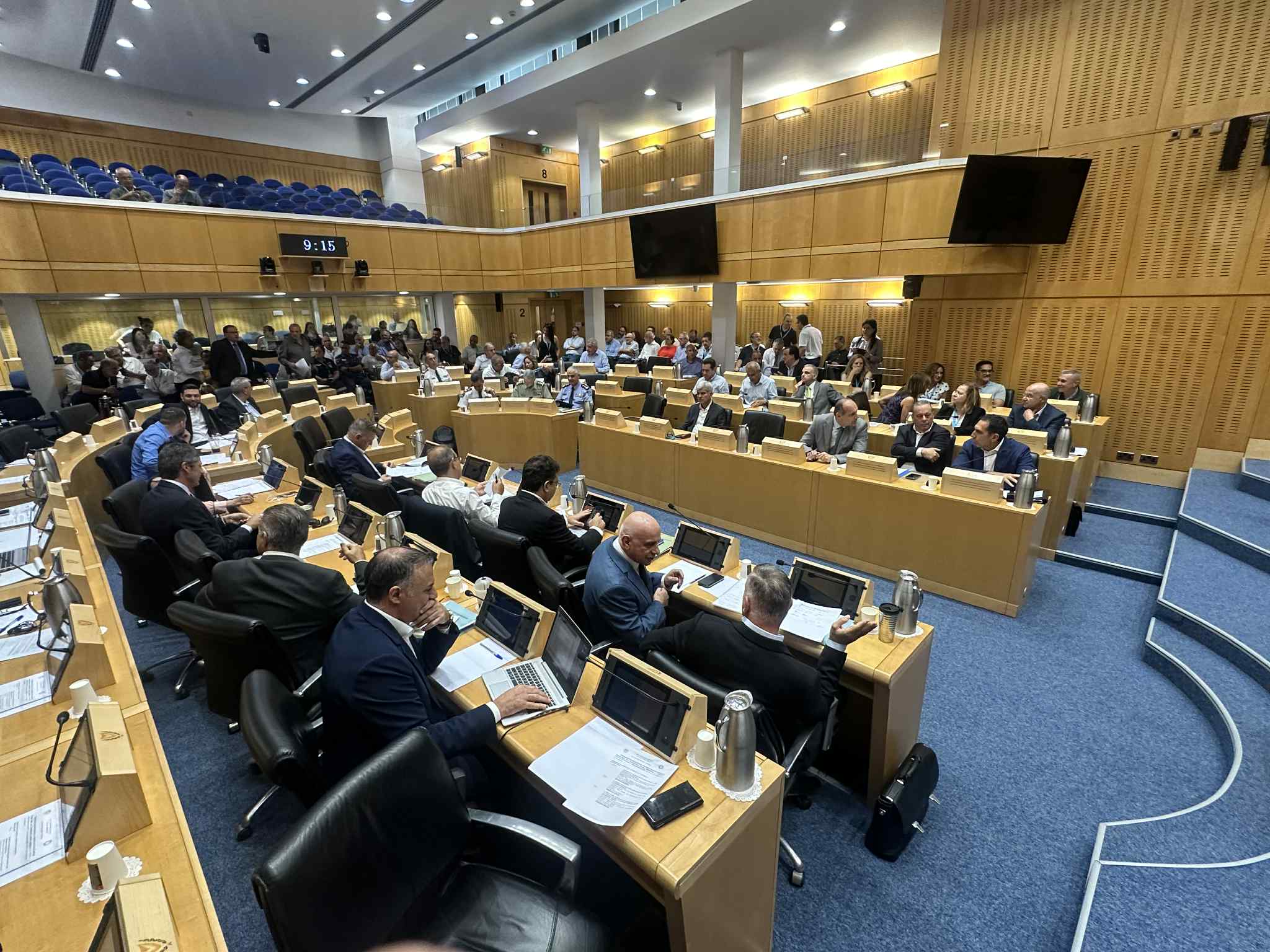A minute of silence marked the start of a rare joint session of three key parliamentary committees in Cyprus, convened to examine the state’s response to the deadly wildfire that swept through mountainous areas of Limassol last month, killing two people.
Held in the main plenary chamber of the House of representatives, the meeting brought together the interior, agriculture and environment committees.
In total, 79 officials and experts attended, including four government ministers and the heads of the fire service, forestry department, civil defence and police.
House president Annita Demetriou led the session, stressing that the aim was not to assign blame, but to identify failings and prevent future disasters.
“We are not here to prosecute,” she said, while also praising the emergency services and volunteers who risked their lives battling the blaze.
Interior Minister Constantinos Ioannou, Defence Minister Vasilis Palmas, Justice Minister Marios Hartsiotis and Agriculture Minister Maria Panayiotou all took part in the hearing.
Each was questioned over their ministry’s role during the emergency.
Aristos Damianou, chair of the interior committee and Akel MP, condemned the tragedy as a case of “weeping over scorched earth”.
He demanded clear answers about the road where the victims, an elderly couple, burned alive.
Damianou asked Justice Minister Hartsiotis which authority was responsible for closing the road between Alassa and Monagroulli, a known fire zone.
He also questioned Agriculture Minister Panayiotou on the absence of the state-appointed wildfire coordinator, Andreas Grigoriou, who was reportedly in Australia at the time.
“Was a deputy appointed? Who took over his duties from 23 July until the fire was fully under control?” he asked.

Green Party MP and environment committee chair, Charalambos Theopemptou, said lessons had clearly not been learned from past disasters. He criticised the lack of fire prevention plans and evacuation procedures.
He also questioned why Cyprus’ emergency alert system ‘112’ failed to function, despite available support from Cyta and the use of sirens. He confirmed he had already submitted written questions to the relevant ministries.
Meanwhile, agriculture committee chair Yiannakis Gavriel, also from Akel, focused on the critical delay in deploying firefighting aircraft.
“Why did it take 52 minutes for the first water drop?” he asked.
He highlighted the need for better strategic planning, real-time alertness, and coordinated action.
Gavriel called for practical measures to support fire-hit communities. He proposed that each village should be equipped with a power generator and a fire truck to allow quicker responses in emergencies.
The committees’ questioning revealed gaps in coordination, unclear responsibility lines, and weaknesses in fire prevention.
As the session continued behind closed doors, ministers were expected to give more detailed accounts of their departments’ actions and any missteps.
So far, no resignations have been announced, but political pressure is growing for accountability and reform.
The wildfire, which broke out in late July, destroyed homes, farmland and natural habitats across Limassol’s rural areas.






Click here to change your cookie preferences